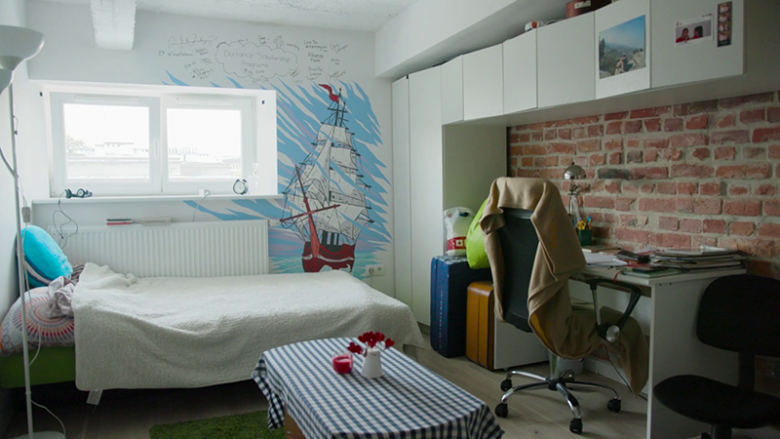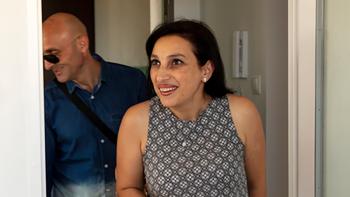Once unused attic - today seven studios
A mural of a majestic red ship with massive masts appears ready to sail right off the wall of Michał’s studio apartment in Warsaw. Michał loves the sea, he says. And yet, he has never felt more grounded, and happily so, than in this space.
His studio is part of the Attic Project, the result of Habitat Poland’s advocacy efforts to help people like Michał, people who have aged out of the country’s foster care system upon turning 18 and are otherwise unable to afford decent housing.
“It’s common practice to direct graduates from foster care institutions to shelters for homeless people. We just object to this.”— Magda Ruszkowska-Cieślak, National Director of Habitat for Humanity Poland
Habitat Poland wants the Warsaw Attic Project to serve as a model for the rest of the country, which has some 75,000 young people in foster care. With partners and volunteers, including Michał, Habitat Poland built seven studios in what was once an unused attic of a building of multifamily units. The young people pay only to maintain their studio and can stay for up to three years.
“The project consists not only to offer shelter but also all kinds of components that will make this transition toward an adult life successful,” Ruszkowska-Cieślak says. An educator lives in one of the studios to lend a hand with schoolwork and job searches or just to lend an ear on the challenges the young people face. Habitat also offers the foster care alumni trainings on time management, budgeting, energy efficiency and food preparation.

Michał’s studio in Warsaw is part of the Habitat for Humanity’s Attic Project. It provides a temporary home for young people aged out of the country’s foster care system.
Without the Attic Project, Michał is not sure where he would be today. “I think I wouldn’t have made it,” he says. Instead, he is finishing his studies in history and plans to teach it.
This studio and the support he received through the Attic Project have helped him become independent and responsible, Michał says. Plus one more thing — he is proud of the man he has become. “I know I have a place to come back to, a place to study, a place I feel secure,” he says. “It has given me a home. For sure, I will be sad to leave this place. At the same time, I will be prepared to leave.”
More stories from Poland

